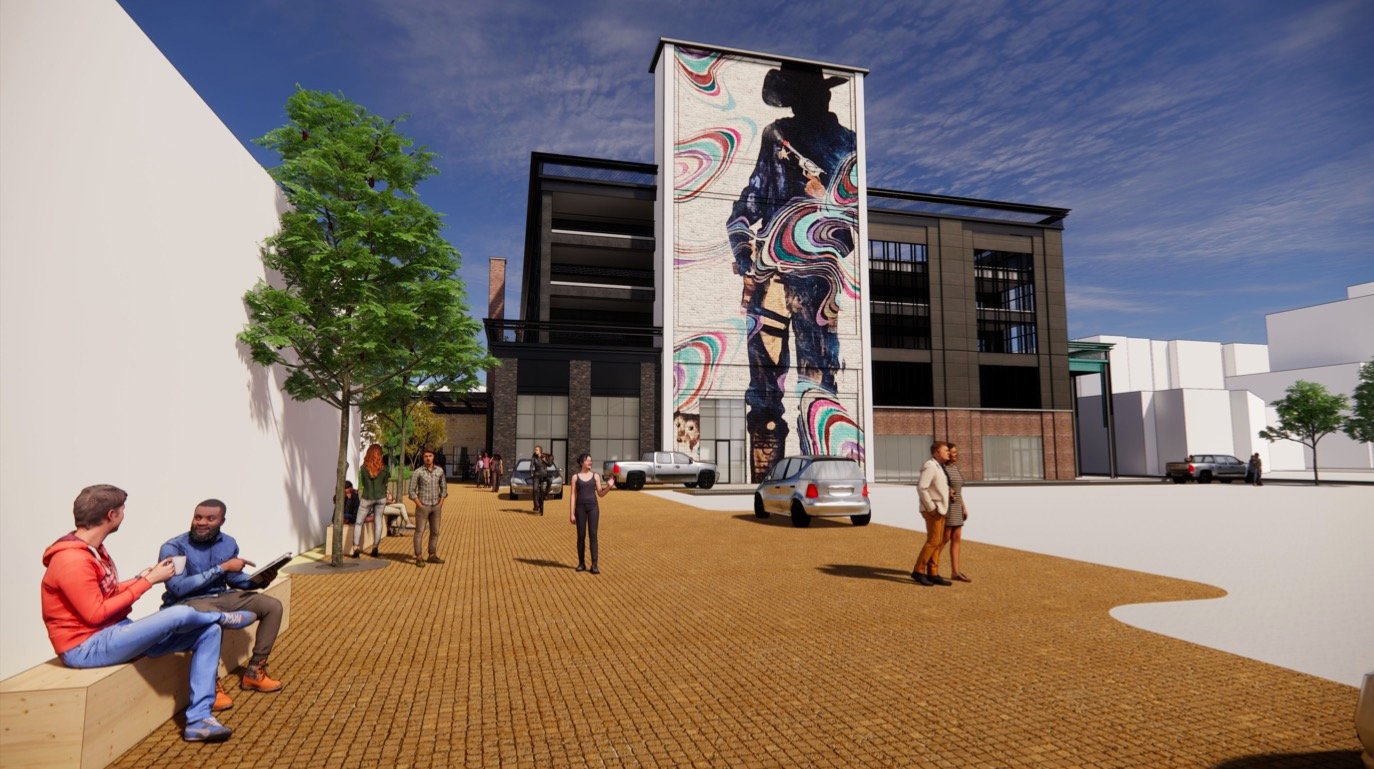
Dickson Street and West Avenue / Photo: Todd Gill, Fayetteville Flyer
Construction of the replacement parking deck in downtown Fayetteville will cost about $3.2 million more than what was originally estimated.
Officials in 2018 anticipated the project to cost the city no more than $10 million, but city staff recently said the pandemic has contributed to rising costs for construction projects because of labor and supply shortages. As a result, recent bids from construction contractors are coming in higher than expected.
Money for the initial $10 million will come from the cultural arts corridor bond issue that voters approved in 2019.
In order to make up the difference, the city plans to use $2.9 million of the nearly $12 million of unreserved money in the city’s general fund, and another $300,000 in street funds.
The new deck will replace the large parking lot across from the Walton Arts Center where an outdoor park and civic plaza called The Ramble is planned. The bond measure stipulated that redevelopment of the lot could not begin until all of the lot’s 290 parking spaces are replaced and ready for use.
A contract for the project was approved by the City Council in March. It included the purchase of about one-half acre of what’s known as the Depot Lot, which is the lot across Dickson Street at the northwest corner of West Avenue where the Bank of Fayetteville’s train bank and Arsaga’s at the Depot are located.
The contract calls for the city to pay $250,000 to Greg House and Ted Belden and $100,000 to Bank of Fayetteville for the land needed to build the five-story parking deck where 330 spaces are planned.

Parking deck design concept by Olsson, Inc. (see more images)
As part of the agreement, House and Belden will be allowed to use most of the ground floor of the deck as commercial space, with the remainder reserved for a city police substation. They will also retain an option to build up to two additional stories on top of the deck for their own use at their own expense.
The contract also included the sale of a fifth of an acre at the north end of the current WAC lot to House and Belden. The city’s plan is for the developers to build what officials are calling the Fayetteville Food Hall, a four-story building envisioned to house multiple culinary experiences, including options for morning, lunch, evening and after-hours dining.
The City Council last month approved a $1.26 million contract with Nabholz Construction for early site work related to the project.
A resolution on the Dec. 7 council meeting agenda asked for a change order with Nabholz for overages related to concrete, masonry, structural steel, waterproofing, glass, glazing, metal studs, painting, elevators, and MEP (mechanical, electrical and plumbing) work.
Approval of that contract failed by a 3-3 vote. It would’ve needed at least five votes to pass.
Teresa Turk, Mark Kinion and D’Andre Jones voted against, while Sloan Scroggin, Sarah Bunch and Holly Hertzberg voted in favor. Sonia Gutierrez Harvey was absent, and Matthew Petty recently resigned.
Turk said she voted against the deck being built in its current planned location and she still has some concerns about the project. She said she’s never been a fan of the land sale associated with the deck construction, and called the idea extravagant and out of touch. Kinion agreed. Jones did not say why he voted against the resolution.
It’s unclear what exactly the failed contract measure means for the deck. A council member could move to reconsider the vote at a future meeting or a new contract could be proposed. It’s also possible that the scope of the project could be reevaluated, or that the delay could cause changes to the construction timeline.
Mayor Lioneld Jordan told council members to expect more cost overages for bond-related projects in the future.
“We made estimates based on 2018 prices and now we’re dealing with 2022 prices,” Jordan said, adding that construction costs are now running anywhere from 30-35% higher than before the pandemic hit.
“I don’t want to sugarcoat anything,” he said. “This will not be the last overestimate you see.”

